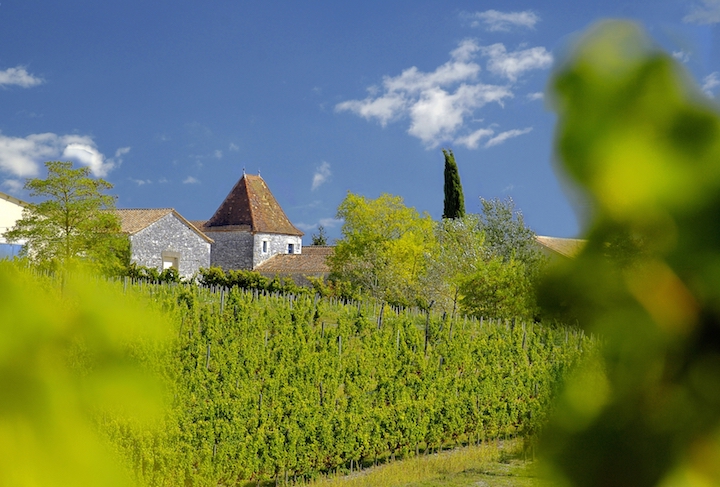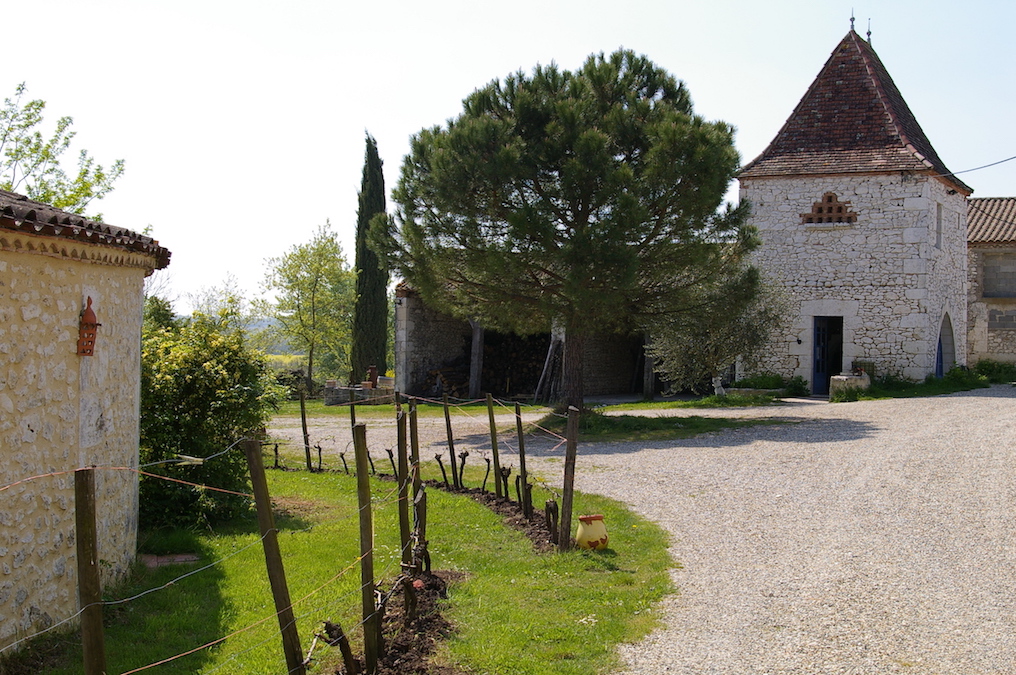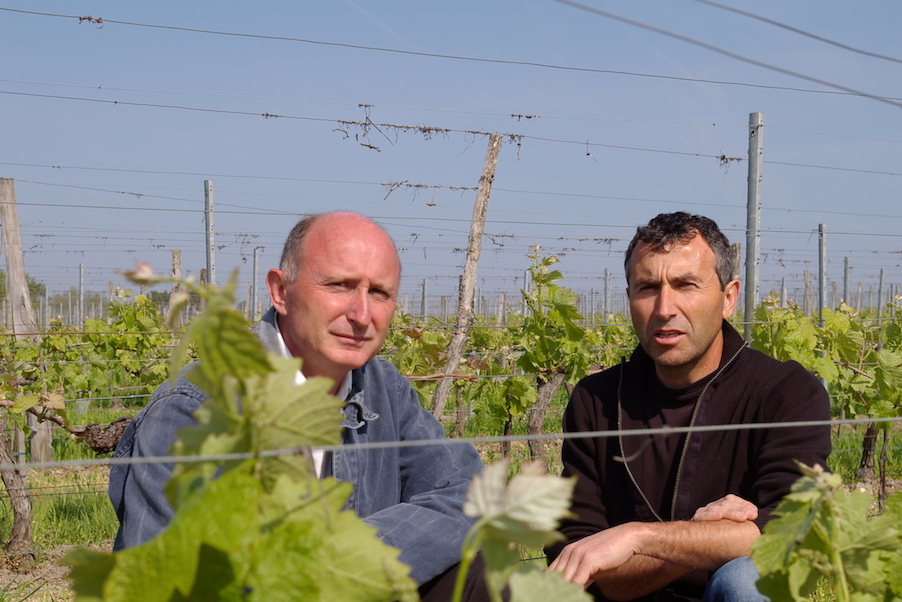
Luc de Conti is the third generation of an Italian family that settled just south of Bergerac in southwest France in 1925 and set up an agricultural business. Luc inherited some old vines and planted more parcels in the ’80s and ’90s, while his wife Martine took control of the rest of the business. Luc and Martine were joined in 1990 by Luc’s cousin, Francis, who brought with him 20 hectares of vines planted in the Saint Julien d’Eymet and Grand Caillou areas, and took charge of the vines.The wine, a red called Chateau Tour des Gendres Rouge, was made in 1986, followed by a white next vintage, and the gastronomic wines called “Moulin des Dames” a few years later. In 1994 the family trialled organic farming on the parcel called “Les Gendres” and by 2005 had converted their entire farm to organic viticulture. They continued to experiment and innovate with single plot farming for each of the grape varieties, experimenting with zero-sulphur winemaking and transitioning away from new oak to using foudres and even amphorae.

How do you like them grapes: Planted here are Bordeaux varieties: Merlot, Cabernet Franc and Cabernet Sauvignon for the reds; Sauvignon, Semillon and Muscadelle for the whites. One cuvee called “Vigne d’Albert” is from a plot of vines in Saint-Julien d’Eymet and contains other original grapes such as Mérille (locally known as Périgord, Abouriou and Fer Servadou).
In the vineyard: The vineyards have been fully organic since 2005 (certified by Agrocert). Travail du sol is done on the soil to improve drainage; there is organic composting; and no synthetic products are used. The use of some biodynamic methods are employed such as herbal teas; Guyot pruning is practiced–the aim is to reach a total of 5-6 bunches of grapes per vine.
In the winery: Intervening on the wines depending on the vintages: fresh wines, fruity wines, wines to age, the discovery of a certain variety or an expression of one single plot of vines…or a combo.. The mature wines reflect their year, their terroirs, and the desires and ambitions of the people behind them. Native yeast ferments are used and the lees are prized, adding richness and texture to the wines, and batonnage is practiced. The red grapes are destemmed and undergo micro-oxygenation according to the cuvee, whereas the whites have a brief cold maceration to extract extra material. Stainless steel tanks are used to age the fresher wines, a variety of foudres for those that will stand the test of wine. The De Contis have recently introduced amphorae into their cellar. The wines are only lightly filtered, but occasionally fined with gelatine.
 QI: Luc was the President of the Federation of Bergerac wines and was in charge of mapping out the terroirs of the region. He was also known by the sobriquet: “Monsieur Mayonnaise” for his devotion to lees-stirring.
QI: Luc was the President of the Federation of Bergerac wines and was in charge of mapping out the terroirs of the region. He was also known by the sobriquet: “Monsieur Mayonnaise” for his devotion to lees-stirring.
The Key Wines:
2019 Vin de France Pet Nat (Sauvignon/Chenin)
2019 Bergerac Blanc “Cuvée des Conti”
2018 Moulin des Dames Blanc
2019 “La Vigne d’Albert” Rouge
2019 Bergerac Rouge “Cuvée des Conti”
2017 Bergerac Rouge “La Gloire de Mon Père”
Food match: The lighter reds would be ideal candidates for rillettes on toast. The more structured wines would happily partner confit of duck or cassoulet or a game terrine. For the lighter whites, river fish cooked with a beurre blanc sauce or a plateau of fruits de mer, and for the more unctuous Moulin des Dames try this with truffles, goat’s cheese (or blue cheese) or chicken with morels.
Philosophy: According to the De Contis: “Winemakers and farmers should relearn to have confidence in the nature – everything has been put into place to work perfectly naturally, without our help. The more we try to intervene through creating a ‘false’ balance and trying to manage everything all the time, the more danger and restrictions there will be for the nature in the long run. Putting an almost-dead soil on the drip cannot and will not be a long-term solution. On the other hand, the more we learn how to tolerate the threats of the nature, by adapting ourselves to it and not the opposite, the more the biodiversity will naturally balance things out, the more the soil will give us, meaning our wines will be more authentic.”
*
Interested in finding more about the wines of
Chateau Tour des Gendres? Contact us directly:
shop@lescaves.co.uk | sales@lescaves.co.uk |
01483 538820
*Note: We are still open for business, doing deliveries, and keen
to help everyone with their booze needs in this difficult time.
Natural wine lovers can visit our online shop and order online!

